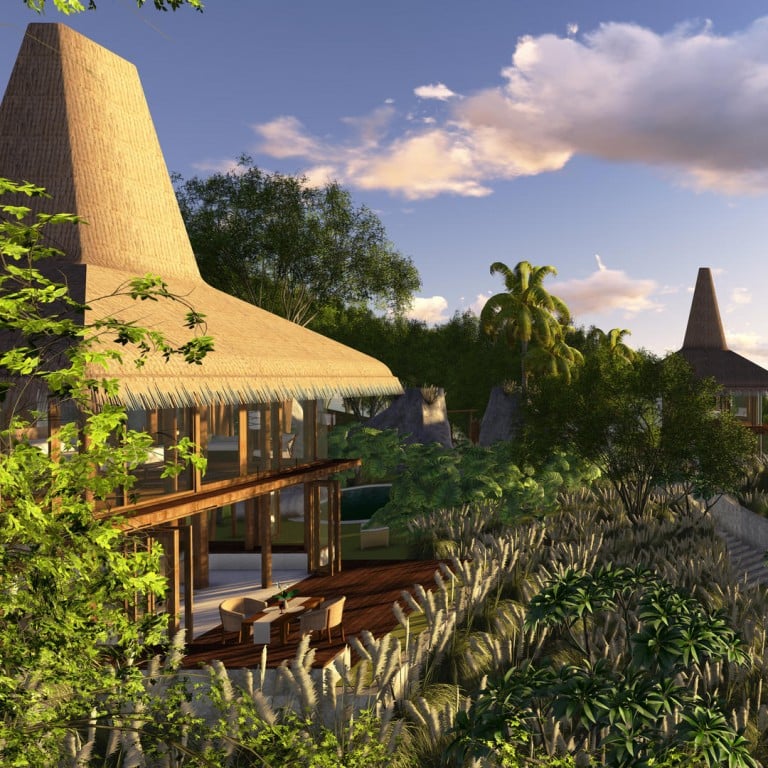Why luxury travellers are heading to Africa and Indonesia

Preserving the habitats of wildlife and plants is a key feature of luxury accommodation funded by billionaires
Conservation is an ethic- from the use of resources to their allocation and their protection. It has been the biggest focus for the health of the natural world to maintain fisheries, habitats and biological diversity for the last few centuries, not to mention rare materials and the ever-growing sector of energy conservation. Wildlife conservation also plays a massive part in all of this: protecting endangered plant and animal species, and their fragile habitats. Various luxury brands, funded by billionaires, are now taking to the world in a new way: to protect and conserve large tracts of "wild lands".
According to eco-psychologist Megan de Beyer, "true wilderness [untouched by hand] is down to 1 per cent" and, although there are large tracts of reserves in the world, "most countries only protect roughly 9 per cent of land impacted upon by humans". The rate of extinction of various animals - remember the dodo bird - have spurred on the message, but it seems now that the right people, with the right funding and right ideas, are starting to realise the world does not need another island, or tract of land, simply plundered with casinos and condos.

American billionaire Paul Tudor Jones, who also happens to be a member of the Robin Hood Foundation and the founder of the Tudor Investment Corporation, described something called a "Just Index" in his TED talk in March. This index, he says, promotes "an increase in justness in corporate behaviour" which he believes can be achieved by everyone. "When we put justness on par with profits, we'll get the most wonderful thing in the world: we'll take back our humanity," Jones says.
Singita Grumeti, part-run by Jones, is an example of how this objective can be achieved in a real case study. The 141.6-hectare concession manages to not only combine the graceful ambition of Cécile and Boyd's design - to work on projects where wild lands are being restored and protected for the future - but also inspired a new way of enjoying lavish mores in a conscious way. This, according to Dutch trend forecaster Li Edelkoort, is becoming the way of being as "conservation takes precedent in the luxe industry".

Guests who stay at these properties often feel a deep sense of appreciation for their surroundings. "Glamour, luxury and beauty through design and architecture has created a portal to convert guests into conservationists," says Boyd Ferguson, CEO of Cecile and Boyd's, and designer of all of Singita's properties. "Beautiful design and making nature attractive to the uninitiated is what brings appreciation and thus philanthropy to the wilderness of now and of tomorrow."
The Grumeti Reserve in Tanzania, for example, which was established in 1993, has recently added Serengeti House to its portfolio. This former manager's house has been altered into an exclusive-use "private hotel" complete with unshared staff. "Privacy and exclusivity are the new luxury: combine them with a personalised approach surrounded by hectares of pristine African wilderness, and you have Singita's Serengeti House," says Lindy Rousseau, chief marketing officer at Singita. This is similar to the strategy of Cisneros Real Estate - fuelled by Adriana Cisneros, CEO and vice-chairman - and their latest "forever" project 45 years in the making: Tropicalia, a master-planned resort development (with the Four Seasons) encompassing 2,428 hectares of land along the southern coastline of Samana Bay in the Dominican Republic.

"This will be a case study for the rest of the world on how to see conservation as an integral part of real estate and hospitality," Cisneros says. "We didn't just want to build a hotel - we wanted to do this in the most responsible way to ensure we could preserve this land."
An advocate in all conservation causes, he worked closely with the government and had the family's philanthropic side of the business "roll up their sleeves and get actively involved".